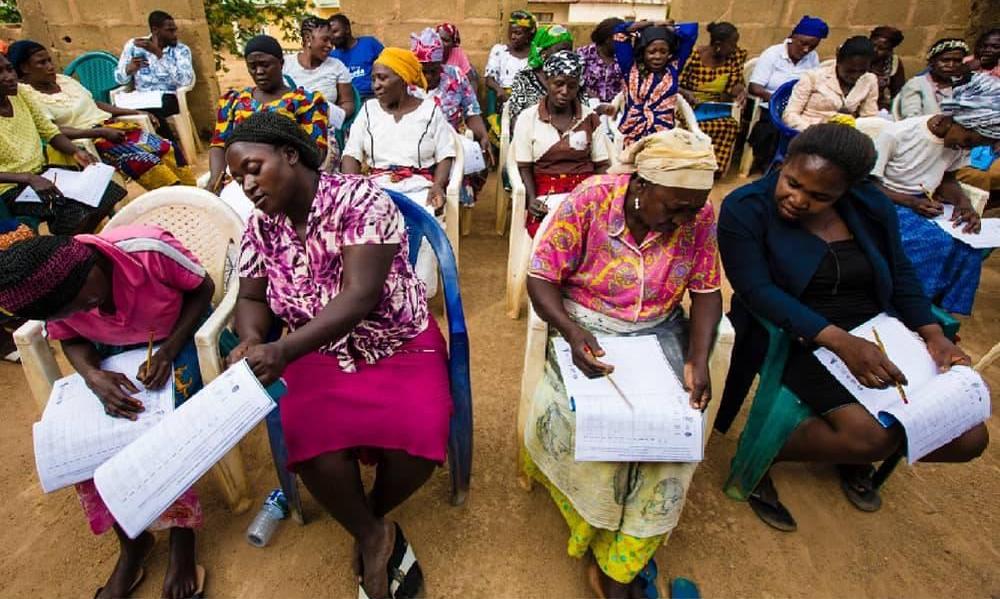Nigerian entrepreneurs Solape Akinpelu and Yomi Ogunleye launched HerVest to provide an on-ramp for the continent’s most financially-excluded women: farmers.
The financing gap for African women is $42 billion. Nearly 40% of this is comprised of women working in agriculture.
“If we are able to tackle the issue from the perspective of women in agriculture who have long been excluded, whose [economic] contribution has long gone unrecorded, then we will be able to tackle the entire issue,” Akinpelu tells AFN.
HerVest focuses on the critical issues that African farmers face: training, access to funding, and access to markets. The Lagos-based startup first works to ensure that female farmers have market access by securing up-front agreements with produce buyers. It then trains them in agricultural best practices, links them to farming inputs, and supports their financial access through a savings and lending model.
Akinpelu and Ogunleye launched HerVest last year amid the Covid-19 pandemic. They recently raised a $100,000 friends-and-family round to support further mobile app development and chart expansion into Ghana, Kenya, and Zambia.
Flipping the model
Most of Africa’s 33 million smallholder farmers sell their harvest to local markets and communities, rather than producing for larger buyers. Whatever they can’t sell is lost income.
HerVest flips the model around: it identifies commercial off-takers, then builds a network of female farmers who can fulfill the agreements it signs. This model helps HerVest determine which crops are in demand, what kind of training needs to be provided, and how much funding farmers need.
After harvest, the app aggregates produce and sells it to the buyers. This approach ensures that farmers have a guaranteed market for their goods, and gives them collective negotiating power to command better prices.
HerVest’s training model uses a community-driven approach to help farmers improve yields.
“Smallholder female farmers in Africa are deficient in the best farming practices in terms of mechanized operations. They operate at the fringes of mechanization,” says Akinpelu.
HerVest provides training directly and through partners, like German development agency GIZ.
Beyond this, it also offers financial education to prepare unbanked women before extending credit and loans to them. Much of its financial literacy material is made available in-app, with information provided in local languages to ensure that it is accessible, inclusive, and effective.
As low internet penetration is an issue in many rural areas, the startup also offers monthly in-person talks and workshops with farmer “clusters,” whereby one point-person with mobile access helps share information to a small group.
HerVest’s longer-term solution is a simple application built with USSD technology that will serve women who have only basic digital access.
Women supporting women
For the financial aspect of its work, HerVest is adapting a common system used by unbanked individuals, particularly women, all over the world: savings circles.
Also known as rotating credit and savings associations, these are community savings and lending networks whereby small amounts of funding are regularly pooled and loaned out among a trusted group of members.
HerVest’s digital savings app allows women all across Nigeria — urban and rural, banked and unbanked — to open savings accounts and set up savings goals. It then gives them the option of making short-term loans — which it calls “impact investments” on its platform — to the female farmers within HerVest’s network.
The model is different from traditional savings circles in that the borrowing option is only available to the farmers in HerVest’s network, not its entire member base. Nevertheless, the startup’s goal is to create a financial community of women who are supporting and financially empowering other women.
It then facilitates a pathway to formal credit access by helping its farmer borrowers build a credit profile, tracking their loan and repayment histories through its app.
“The journey has been rewarding for all parties,” Akinpelu says. “When we invest in these farmers, we impact many households. Hearing from these women who are particularly happy has been gratifying.”
Akinpelu also says the work resonates on a personal level. “Things are coming full circle. I was raised by a resilient woman who pulled multiple jobs and continued to do farming.”





